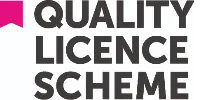This Forensic Accounting Training Course, is delivered over 09 modules:
Module 1 - Introduction to Forensic Accounting
In the opening course module, candidates are provided with a broad introduction to the field of forensic accountancy along with what it is the practicing forensic accountant does. Course content covers the fraud cycle, a series of contemporary fraud-types and what it takes to succeed in this dynamic, high-energy discipline.
Module 2 - Psychology of The Fraudster
Fraudsters, their activities and the way they think/operate represents the primary core focus of Module 2. A series of high- and low-level types of fraud are examined, along with how and why certain individuals/business face a higher risk of being targeted by fraudsters than others.
Module 3 - Fraud Detection Techniques
The fourth course module takes a more intensive and comprehensive look at contemporary fraud detection techniques. Candidates are guided through a series of fraud risk factors, crucial fraud identification techniques and effective methods for gathering information/evidence. Revenue recognition detection and financial statement fraud are also outlined.
Module 4 - The Investigative Process
Course content in Module 4 switches to fraud investigation techniques, guiding candidates through intelligence gathering and analysis, planning a case, establishing case goals and putting a case into action. The important of strong planning and a workable investigative structure is also discussed.
Module 5 - Gathering Evidence
Evidence gathering techniques are explored in greater depth in Module 5, incorporating an overview of important types of evidence, additional evidence the forensic accountant creates personally, documents crucial to the investigative/case process and the role documentary evidence plays in validating/disproving a case.
Module 6 - Obtaining & Evaluating Non-Financial Evidence
Non-financial evidence represents the core focus of Module 6, in which candidates are introduced to effective interview techniques and how to properly analyse written/spoken statements. Course content explores the importance of combining financial and non-financial evidence when looking to prove a case.
Module 7 - Forensic Interviewing Techniques and Processes
Interview techniques are further explored and expanded in Module 7, which incorporates an exploration of the interview process and its most important core elements. The purpose and objectives of the interview are outlined, along with crucial interview planning strategies and how to ask the right questions to financially-sophisticated witnesses.
Module 8 - Fraud Risk Assessment
Course content in the following module brings risk assessment and analysis. Into the discussion. Along with an overview of why fraud prevention is more valuable than fraud detection, candidates explore a variety of best practice standards and common risk factors.
Module 9- Fraud Prevention
A more intensive investigation of fraud prevention follows in Module 9, in which candidates are guided through a series of theories/methodologies for minimising the likelihood of fraudulent activity. The enforcement of ethics and establishing fraud policy are also introduced.
OHSC Certificate of Completion - Digital certificate
Digital certificate - Included.
Quality Licence Scheme Certificate of Completion - Hard copy certificate
Hard copy certificate - £85
Note: A nominal fee of £9.99 covers the delivery charge within the United Kingdom and a nominal fee of £19.99 covers the delivery charge outside the United Kingdom.



![<php echo $related_row['name']; ?>](https://www.oxfordhomestudy.com/images/subject/1709814599ForensicAccountingEndorsed2.webp)
![<php echo $related_row['name']; ?>](https://www.oxfordhomestudy.com/images/subject/1709814609forensicAccountingEndorsed3.webp)
![<php echo $related_row['name']; ?>](https://www.oxfordhomestudy.com/images/subject/1709814619ForensicAccountingEndorsed4.webp)
![<php echo $related_row['name']; ?>](https://www.oxfordhomestudy.com/images/subject/1709814630ForensicAccountingEndorsed5.webp)
![<php echo $related_row['name']; ?>](https://www.oxfordhomestudy.com/images/subject/1709814640forensicaccountingendorsed6.webp)
![<php echo $related_row['name']; ?>](https://www.oxfordhomestudy.com/images/subject/1709814655forensicaccountingendorsed7.webp)